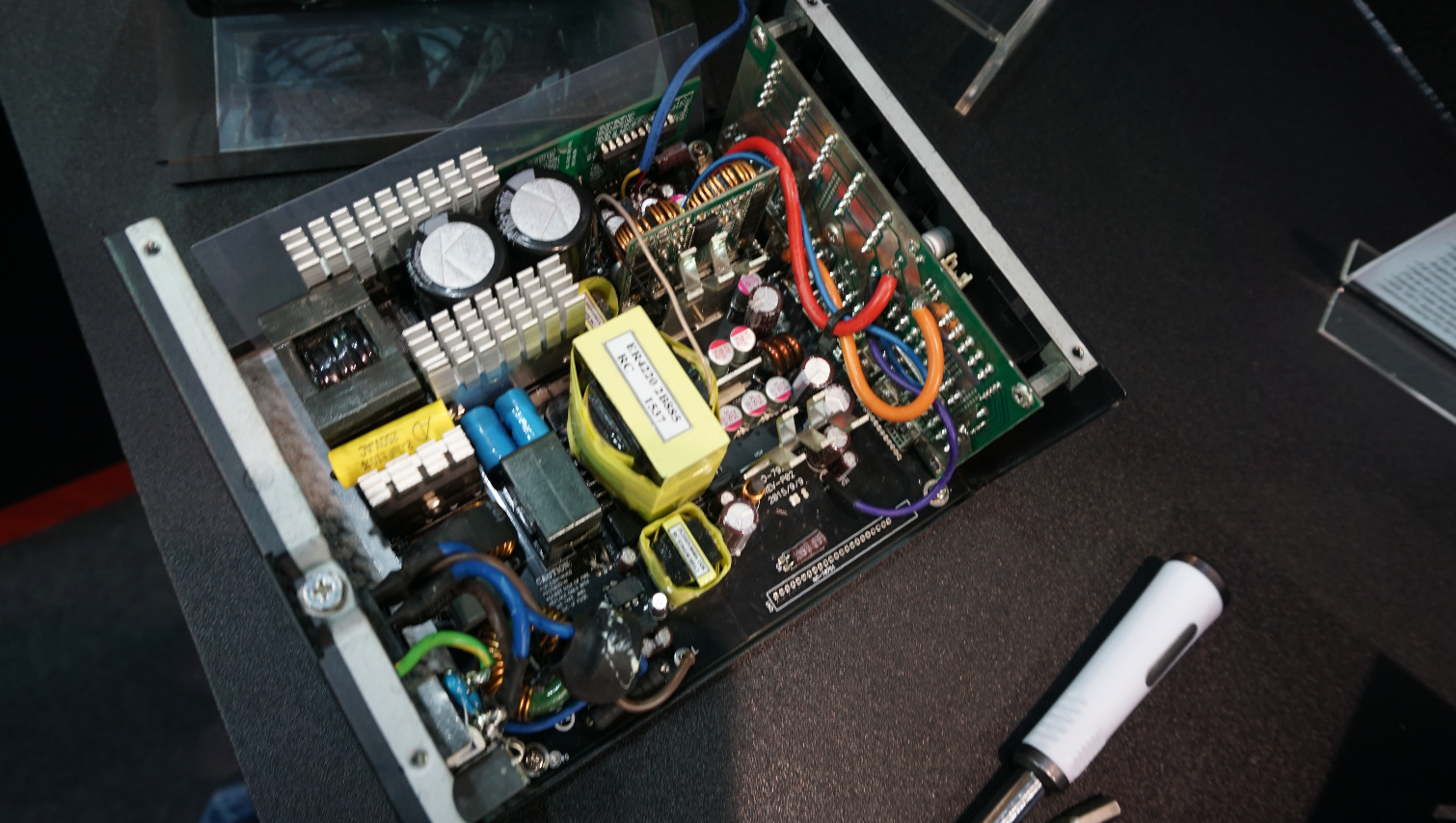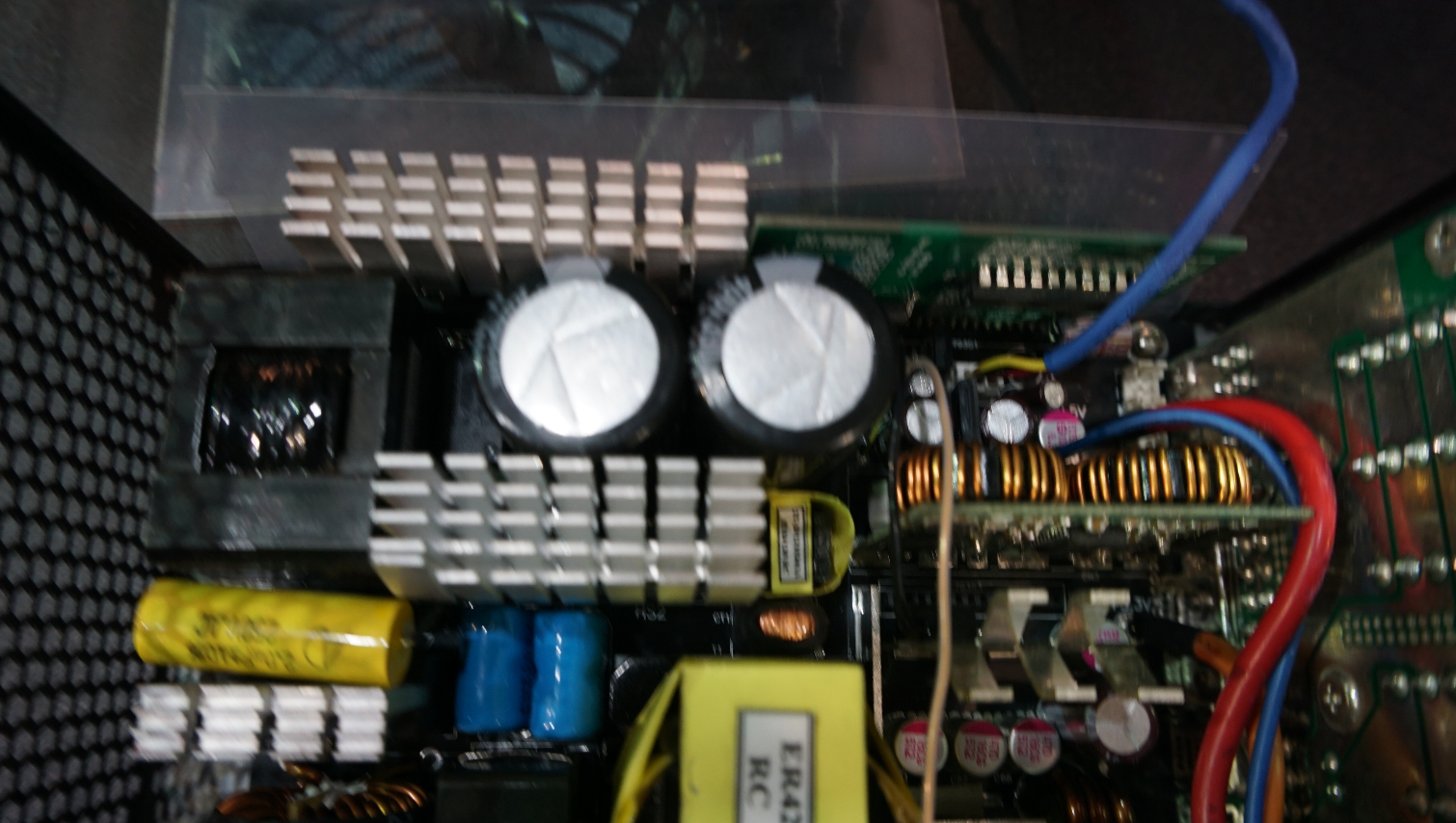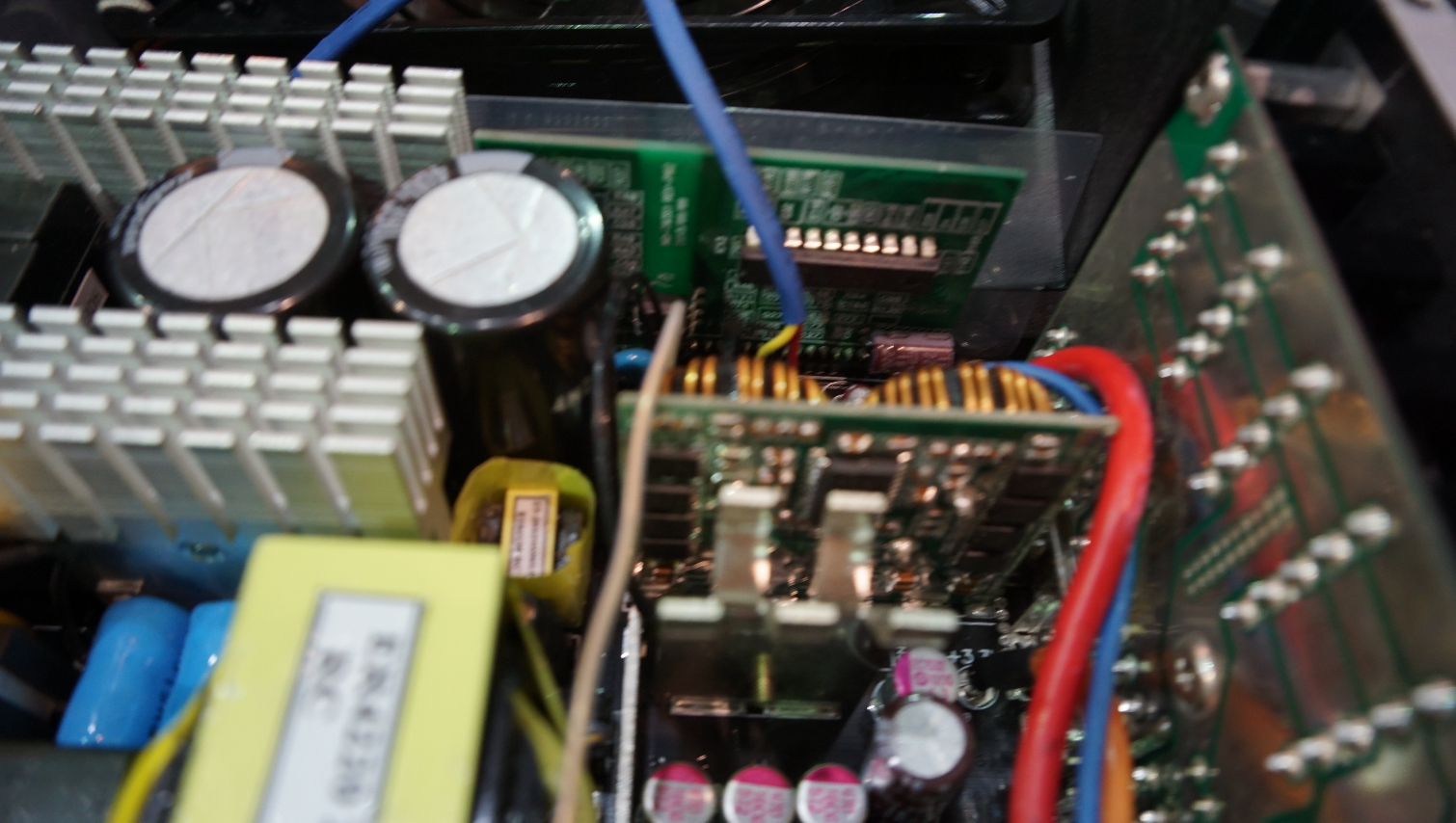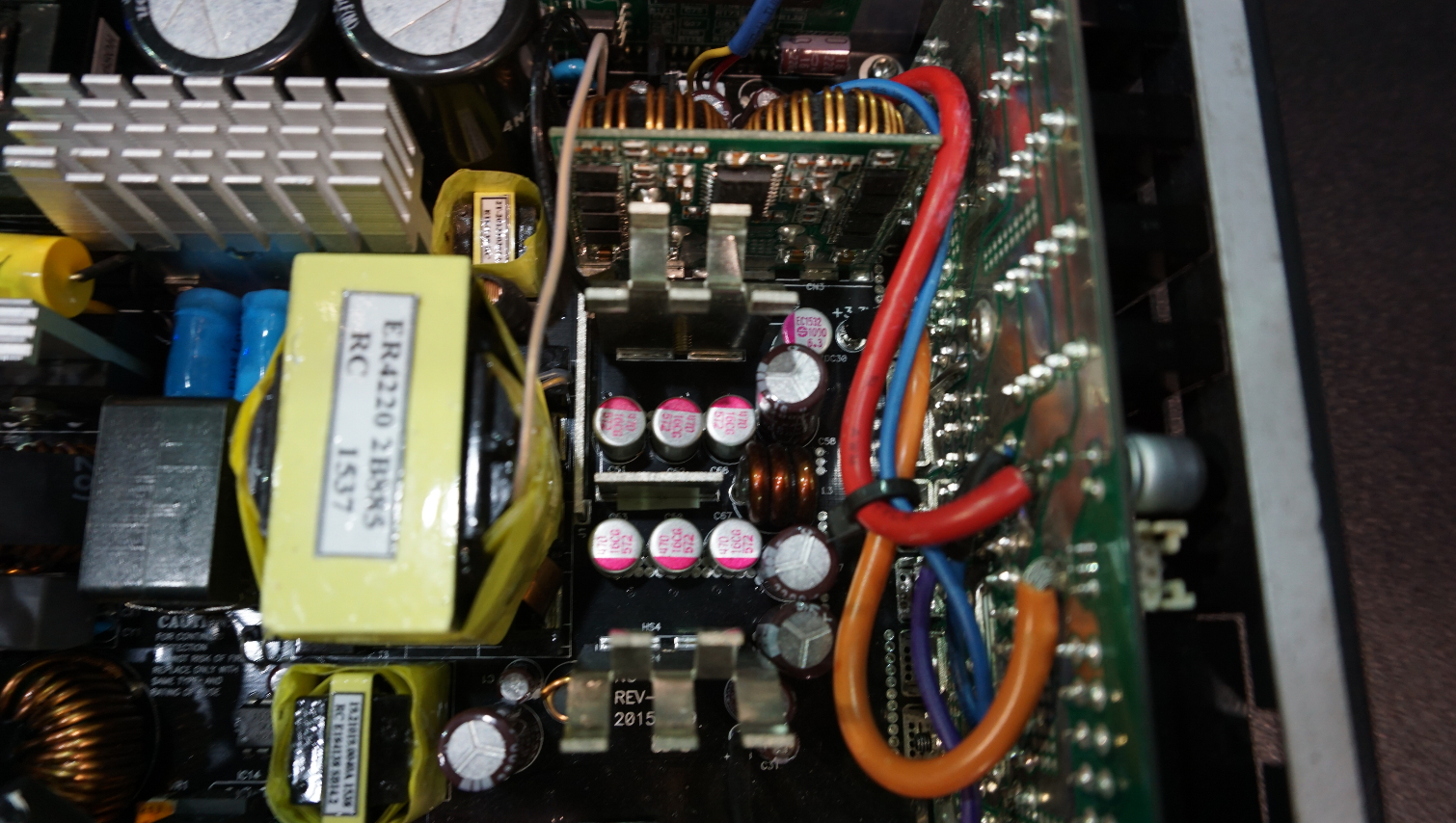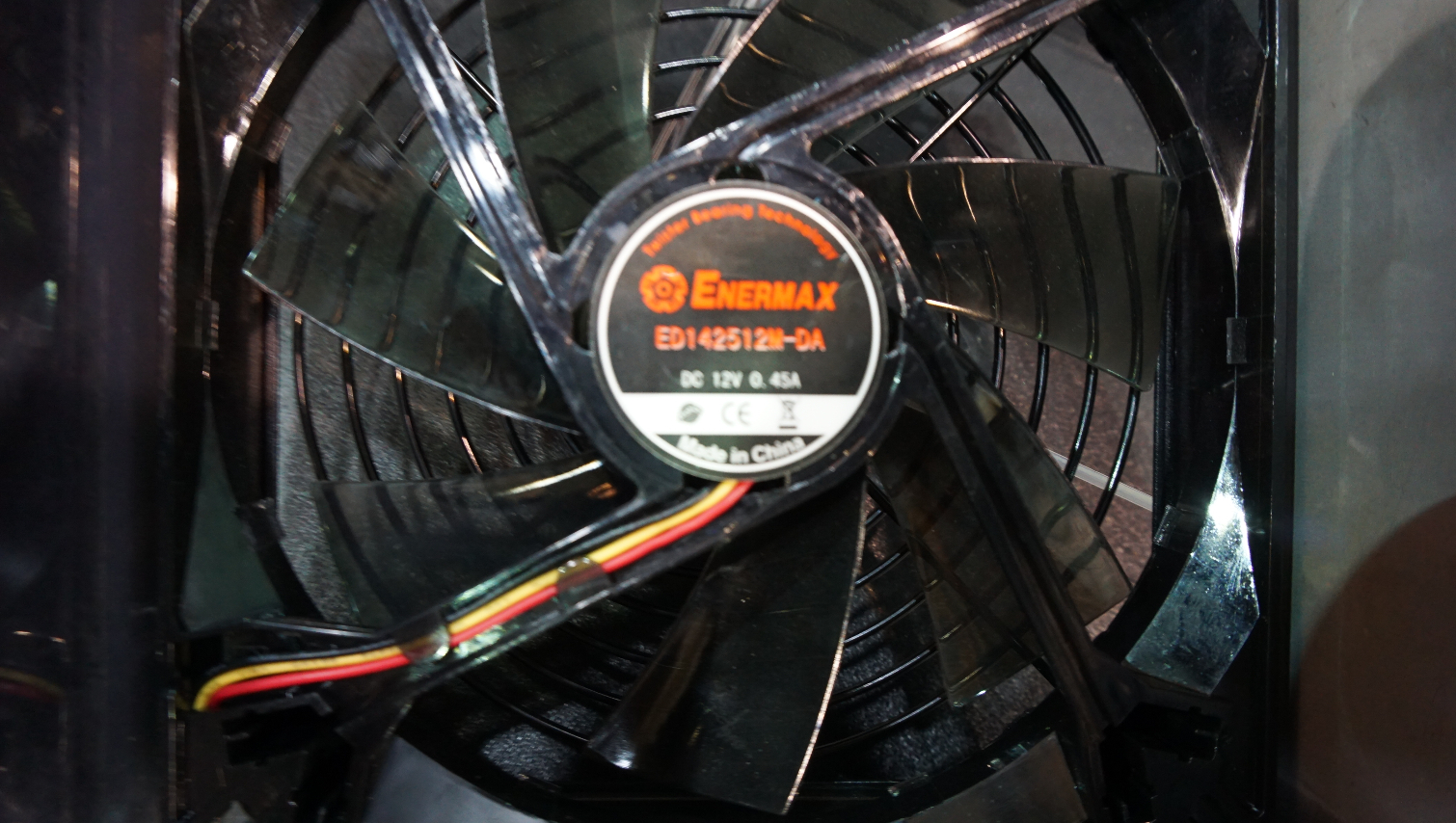A Sneak Peek At Enermax Platimax DS PSU Internals
Among the four new PSU lines that Enermax revealed at Computex, the Platimax DS was the most interesting because it uses a digital platform. Enermax already has a digital PSU in its portfolio, the Digifanless, which is based on an in-house design. Normally it would be safe to assume that the Platimax DS units use a slightly modified version of the Digifanless platform, but we discovered a number of notable differences between these two designs.
Initially, Enermax representatives stared at us strangely when we asked for permission to remove the top panel and take a peek at the Platimax DS unit's internals, but soon they were searching for a screwdriver to assist us. However, we came to the show prepared, and in a matter of seconds after receiving the green light, we were looking inside.
We immediately spotted two APFC bulk caps, provided by Rubycon, and with 390uF capacity each, or 780uF combined. That capacity should be enough to provide a pretty long hold-up time with 850W load. The only thing that bothered us in this section is the low voltage rating of these caps (400V), which is only 20V above the APFC's DC bus voltage. In such high-end and expensive PSUs, we would like to see at least 420V or, ideally, 450V bulk caps.
In the Platimax DS, the two DC-DC converters are installed on a small PCB; in the Digifanless, these converters are on the modular panel. This means that the minor rails have to be transferred to the modular sockets, and in this case Enermax used two thick power cables for this purpose. By installing the DC-DC converters on the modular panel, you restrict energy loss because the distance that the power has to travel up to the modular sockets is shorter, and therefore, there will be much less resistance. Lastly, we also noticed that a single PWM controller handles both VRMs (Voltage Regulation Modules), as is usually the case in most PSUs.
The electrolytic filtering caps on the secondary side are provided by Nippon Chemi-Con, whereas the polymer caps are by Teapo. Polymer caps last much longer because they don't contain any liquid electrolyte, and Teapo is a decent manufacturer, but in a top-of-the-line PSU we expected to see Japanese caps used everywhere. We hope Enermax considers this before it starts mass production.
Finally, two heatsinks on the secondary side hold the +12V FETs. This is another difference: The Digifanless unit installs all +12V FETs on a large daughterboard. We know that the platform used in the Digifanless unit was designed by Enermax, but we can't be sure if this is the case with the Platimax DS platform, because the differences between these two platforms are notable.
The cooling fan caries the Enermax logo, and its model number is ED142512M-DA (139mm, 12V, 0.45A). This fan uses a twister bearing, which has an extra long lifetime (100,000 MTBF).
Get Tom's Hardware's best news and in-depth reviews, straight to your inbox.

Aris Mpitziopoulos is a contributing editor at Tom's Hardware, covering PSUs.
-
turkey3_scratch I'm not so sure about these twister bearing fans. Considering the price it'll probably sell at, I'd expect a double ball bearing or FDB fan rather than sleeve bearing on steroids.Reply -
turkey3_scratch Reply18085666 said:I'd like to see someone say the same thing about Noctua's bearing. :|
I don't follow. -
Calculatron Enermax's bearing design, if I recall correctly, is a type of rifle bearing that is magnetically stabilized, which isn't too far removed from what constitutes Noctua's SSO2 bearing. Calling it a sleeve bearing on steroids is selling it a bit short - I'm not saying that the quality of Enermax is on par with Noctua, I'm just saying that they shouldn't be written off quite so readily.Reply -
turkey3_scratch Reply18097707 said:I'll wait until Johnny Guru gets his hands on one.
Or Toms, or Techpowerup, or HardOCP, Kitguru, pcper, etc. There are a ton of PSU review sites.
